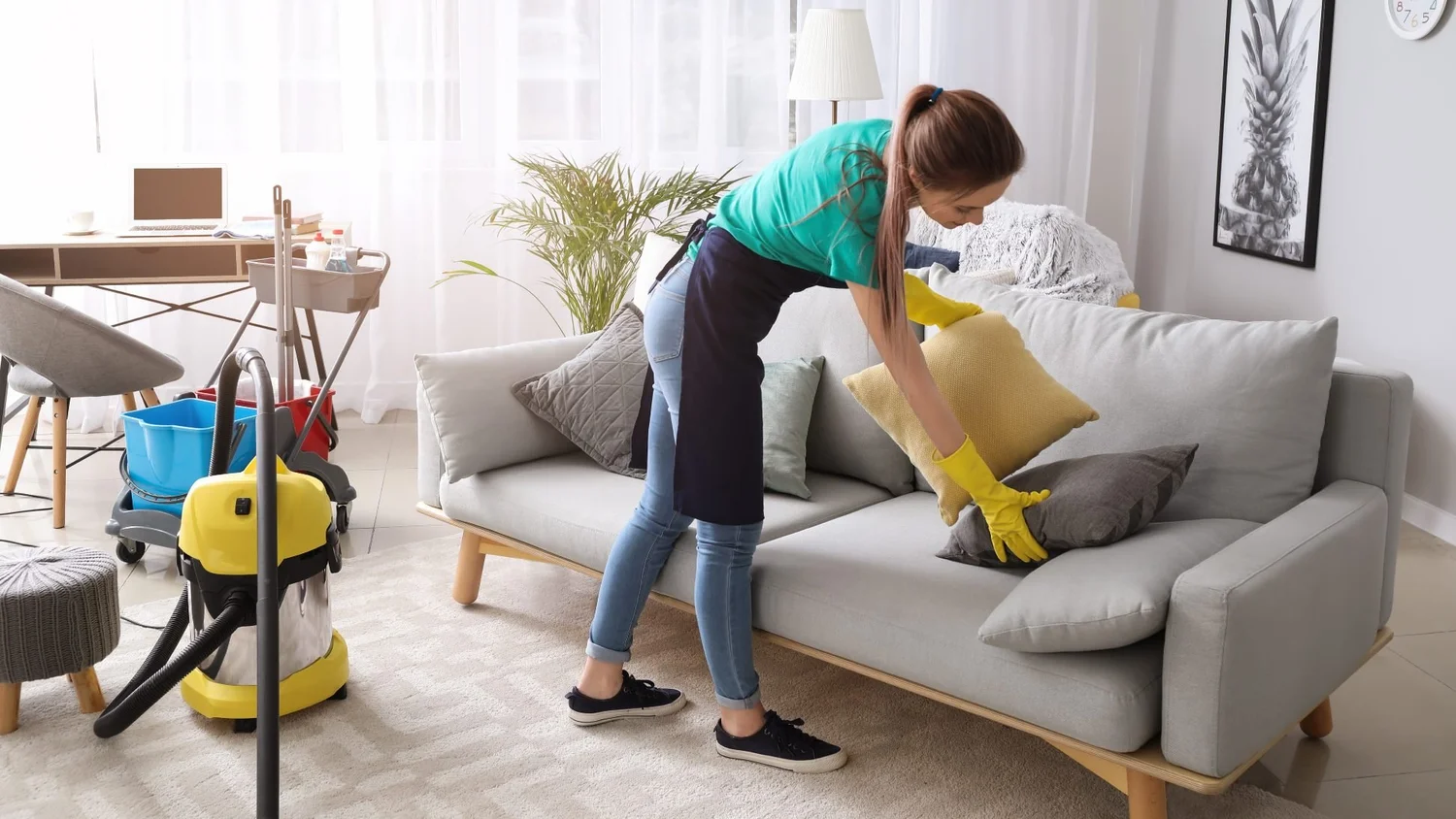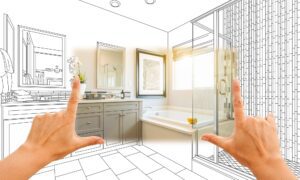In today’s fast-paced world, the environment in which we live plays a crucial role in our mental clarity, productivity, and overall well-being. Clean and well-organized living spaces offer more than just visual satisfaction — they promote health, reduce stress, and reflect personal discipline. Whether you’re a tenant, property manager, or homeowner, apartment cleaning should never be treated as an occasional chore but rather as a regular practice integrated into daily life. This comprehensive article delves into why cleaning your apartment regularly matters, how to structure a manageable routine, the tools and techniques that make cleaning more efficient, and what steps you can take to maintain a clutter-free, hygienic home.
The Importance of a Clean Apartment
Living in a clean apartment isn’t just about aesthetics; it directly impacts your health, lifestyle, and mental state. Dust, mold, bacteria, and clutter can lead to allergies, respiratory problems, and even anxiety or depression. Conversely, a clean and orderly space promotes relaxation, focus, and a sense of control — especially important in smaller living areas where even minor messes can feel overwhelming.
A well-maintained apartment also demonstrates a level of personal responsibility and consideration for shared spaces, particularly in multi-unit buildings. Regular apartment cleaning routines help preserve the condition of the property, which is especially beneficial for renters looking to secure their full security deposit when moving out.
Moreover, a tidy apartment leaves a lasting impression on guests and makes spontaneous entertaining stress-free. It removes the “embarrassment factor” that can come with an unkempt home and boosts your confidence in your living space.
Understanding the Scope of Apartment Cleaning
The concept of apartment cleaning encompasses more than just vacuuming or wiping down counters. It includes:
- Surface cleaning: Dusting, wiping, and disinfecting surfaces like countertops, tables, windowsills, and appliances.
- Floor maintenance: Sweeping, vacuuming, mopping, and carpet care.
- Kitchen hygiene: Cleaning the stovetop, sink, refrigerator, pantry, and microwave — often overlooked areas where germs thrive.
- Bathroom sanitation: Scrubbing the toilet, shower, sink, and mirrors; replacing used towels and emptying the trash.
- Bedroom upkeep: Washing bed linens, vacuuming under the bed, dusting furniture, and organizing closets.
- Living area organization: Arranging books, folding blankets, fluffing pillows, and managing electronics or cables.
- Trash management: Regularly removing garbage and recycling, cleaning bins, and using liners to reduce odors.
- Clutter control: Managing shoes, laundry, mail, keys, and miscellaneous items that accumulate over time.
Each of these areas contributes to the overall cleanliness and harmony of the home. Ignoring even one can cause a ripple effect that disrupts the flow and comfort of the entire apartment.
Building a Sustainable Cleaning Routine
One of the biggest reasons people struggle with apartment cleaning is not the difficulty of the tasks but the lack of a plan. The key to maintaining a clean space isn’t deep-cleaning once every few months — it’s creating consistent, smaller cleaning habits that prevent dirt and mess from accumulating.
- Daily Tasks
These should take no more than 15–30 minutes each day:
- Make the bed
- Wipe kitchen counters
- Wash dishes or load the dishwasher
- Do a quick clutter sweep of common areas
- Take out the trash if full
- Weekly Tasks
These take 1–2 hours and include:
- Vacuuming and mopping floors
- Cleaning the bathroom
- Dusting surfaces
- Laundry (including sheets and towels)
- Deep cleaning one “zone” (e.g., fridge, oven, or closet)
- Monthly Tasks
These are often forgotten but essential:
- Washing windows and mirrors
- Wiping down walls and baseboards
- Cleaning light fixtures and ceiling fans
- Organizing storage spaces
- Decluttering paperwork and unused items
Creating a schedule that fits your lifestyle can help you stay consistent without feeling overwhelmed. You don’t need to do everything in one day — breaking it down across the week keeps cleaning manageable.
Tools and Products That Make a Difference
Having the right tools can significantly reduce the time and effort required for effective apartment cleaning. Here’s a breakdown of must-have items:
- Microfiber cloths: These are great for dusting, polishing, and wiping surfaces without scratching.
- All-purpose cleaner: A versatile product that works on most surfaces from countertops to appliances.
- Vacuum cleaner: Ideally, one with attachments for crevices and upholstery.
- Mop and bucket or spray mop: Essential for tile, vinyl, or hardwood floors.
- Disinfectant wipes: Convenient for high-touch areas like doorknobs, switches, and remote controls.
- Scrub brushes: For grout lines, tubs, and tough stains.
- Toilet brush and cleaner: No bathroom cleaning is complete without it.
- Storage bins or baskets: Helpful for organizing and reducing visual clutter.
Using quality products doesn’t just improve results — it also enhances your satisfaction with the process, making it more likely that you’ll stick with your cleaning routine.
Decluttering: The First Step Toward a Clean Apartment
You can’t clean clutter. This golden rule of organization highlights the importance of reducing unnecessary items before attempting a deep clean. Decluttering is often the most transformative step in any apartment cleaning routine because it instantly opens up space, improves functionality, and makes regular cleaning easier.
Start by focusing on one category or area at a time — clothes, shoes, kitchen gadgets, books, paperwork, etc. Use the “keep, donate, toss” method to make quick decisions. If you haven’t used it in six months and it doesn’t bring you joy or serve a practical purpose, let it go.
Digital clutter is also real — organize your electronics, label chargers, and store items like remotes and game controllers in designated spots. Less clutter equals less stress and a faster path to a cleaner home.
Cleaning for Your Mind and Mental Health
The connection between cleanliness and mental well-being is well-established. Studies show that messy environments can lead to increased cortisol (stress hormone) levels, decreased productivity, and poor sleep quality. In contrast, clean and tidy spaces promote mental clarity, better decision-making, and emotional stability.
Many people find apartment cleaning to be a therapeutic activity — a physical way to reset, refocus, and release tension. The repetitive motion of cleaning tasks can be meditative and grounding, giving you a sense of control and accomplishment.
Adding music, audiobooks, or podcasts to your routine can make cleaning more enjoyable and turn it into a habit you might even look forward to.
Avoiding Common Cleaning Mistakes
Even well-intentioned cleaning efforts can fall short if certain mistakes are made:
- Not reading labels: Using the wrong cleaner on a surface (e.g., bleach on marble) can cause damage.
- Skipping prep work: Not picking up clutter before vacuuming or not letting disinfectants sit for the recommended time can reduce effectiveness.
- Overlooking hidden spots: Areas like under the couch, behind appliances, and inside cabinets collect dust and grime quickly.
- Using dirty tools: Cleaning with a filthy sponge or mop only spreads germs. Wash or replace tools regularly.
By avoiding these pitfalls, you enhance the quality and efficiency of your apartment cleaning efforts.
Eco-Friendly Cleaning Options
More people today are turning toward green cleaning solutions — and for good reason. Traditional chemical-based cleaners can contribute to indoor air pollution and pose risks to children and pets. Eco-friendly alternatives not only protect your health but also reduce your environmental impact.
You can make your own natural cleaners using ingredients like:
- White vinegar (cuts grease, deodorizes)
- Baking soda (abrasive, odor neutralizer)
- Lemon juice (natural bleach, disinfectant)
- Essential oils (for scent and anti-bacterial properties)
Many reputable brands now offer non-toxic, biodegradable cleaning products that perform just as well as their chemical-laden counterparts.
Maintaining Cleanliness Between Deep Cleans
The secret to a perpetually clean apartment isn’t constant scrubbing — it’s smart habits that reduce the need for major overhauls. Here are some tips to help you maintain a clean space:
- Clean as you go: Wipe counters after cooking, rinse the sink after brushing your teeth, and pick up clothes immediately.
- Use entryway mats: They reduce the dirt tracked into your home.
- Limit eating to certain areas: This reduces crumbs and stains across the apartment.
- Do a 10-minute reset each night: A quick tidy-up before bed keeps clutter from building up.
- Set reminders: Digital alarms for laundry day, trash collection, or deep clean days can keep you on track.
Conclusion: Turning Cleaning Into a Lifestyle, Not a Chore
Ultimately, apartment cleaning isn’t just about maintaining appearances — it’s about creating a personal sanctuary. Your apartment reflects your habits, values, and state of mind. Making cleanliness a consistent part of your routine fosters pride in your living space and improves your quality of life.
By understanding the benefits, building a manageable plan, equipping yourself with the right tools, and committing to healthy cleaning habits, you can transform your apartment into a clean, calm, and welcoming place — not just occasionally, but every single day.
If you start small and stay consistent, you’ll find that maintaining a clean apartment becomes second nature — a part of your lifestyle rather than a dreaded obligation.

































